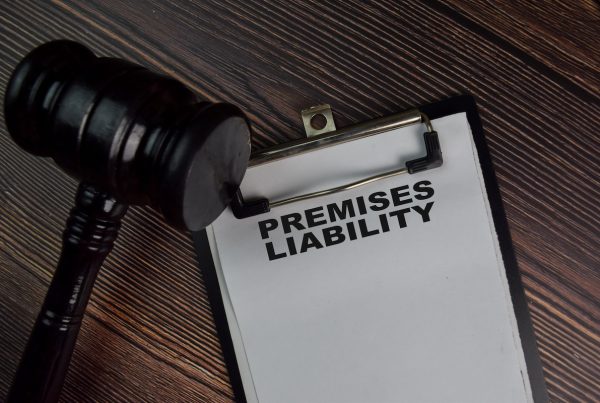 The Centers for Medicare and Medicaid Services (CMS) sets policy for State health agencies, setting forth health and safety regulations, otherwise known as Conditions of Participation (COP). This includes setting a time frame within which a hospital must respond to a grievance launched by a patient. CMS also defines what qualifies as a patient grievance.
The Centers for Medicare and Medicaid Services (CMS) sets policy for State health agencies, setting forth health and safety regulations, otherwise known as Conditions of Participation (COP). This includes setting a time frame within which a hospital must respond to a grievance launched by a patient. CMS also defines what qualifies as a patient grievance.
A patient grievance is defined as:
- A verbal complaint made by a patient that cannot be resolved at the time by staff present
- A verbal complaint made by a patient that is postponed for a later resolution
- A verbal complaint made by a patient that is referred to other staff for a resolution
- A verbal complaint made by a patient that requires investigation or further actions
- A written complaint made by a patient is always considered a grievance
- All complaints, written and verbal that are regarding abuse, neglect, harm, or noncompliance with COPs are grievances
Billing issues do not constitute grievances unless it is related to certain rights and limitations. Before 2004, a patient grievance was considered only a formal written or verbal grievance filed by the patient regarding an issue that cannot be resolved promptly. The newer definition is less rigid, allowing more patients to launch grievances in less formal circumstances.
How to File a Medical Complaint
Filing a medical complaint is essential for patients who have experienced substandard medical care or encountered issues with healthcare providers. Here are the general guidelines for effectively filing:
- Gather Relevant Information: Gather all of the information relevant to your complaint, such as dates, names of those involved, and a detailed account of the issue or incident.
- Identify the Appropriate Authority or Organization: Depending on the nature of the complaint, you must submit the information to the appropriate authority or organization. The most common options include the state medical board, licensing authority, or healthcare facility grievance department.
- Submit Your Complaint: The organization should provide a complaint form or offer specific guidelines online. Take the time to complete the form with all the required information and as much detail as possible. Be sure to attach any supporting documents you have, such as medical records, bills, or correspondence related to the incident. Keep copies of all submitted documents to ensure you have a record if the original is lost or damaged.
- Seek Legal Advice: Consult with a medical malpractice attorney to determine the appropriate authority or if you encounter difficulties during the complaint process. An attorney can ensure your complaint is properly filed and assist with any legal complexities that may come up.
What is the Most Common Medical Complaint?
Unfortunately, there are a few medical complaints we hear of most often in law practice. One of the most common medical complaints law firms receive is misdiagnosis or delayed diagnosis. In these instances, medical professionals fail to accurately identify a medical condition in a timely manner, leading to the patient suffering harm or worsening conditions. Unfortunately, a missed or delayed diagnosis can have the patient undergoing delayed or improper treatment, causing significant physical and emotional harm.
Medication errors are another common medical complaint. These errors could occur during prescribing, dispensing, or administering medications. Any mistakes in dosage, providing the incorrect medication, or not recognizing drug interactions can cause the patient to experience adverse reactions, serious health complications, or even death.
Surgical errors are also a somewhat common complaint and may include mistakes like wrong-site surgery, incorrect procedures, or surgical instruments left inside the body. Such errors can result in severe complications, infections, or long-term health problems.
Birth injuries are a big concern for families that can occur due to medical negligence during prenatal care, labor, or delivery. Some of the most common include neurological injuries such as cerebral palsy, Erb’s palsy, delays in necessary interventions, or mishandling of complications during childbirth.
How Long Does it Take to Resolve a Medical Complaint?
Regarding the duration of resolving a medical complaint, the process will typically follow certain guidelines. According to CMS guidelines, hospitals are required to respond to a patient grievance within seven days. However, this timeframe is just for the initial response and does not guarantee a complete resolution is reached within that period. The hospital’s response can be provided in writing or delivered via email. To ensure a fair evaluation, a grievance committee of more than two qualified individuals is typically assembled to review the patient’s grievance and the hospital’s response. The committee’s aim is to assess the situation carefully, consider all relevant information, and work toward an appropriate resolution.
Once the committee begins its review, the timeframe can vary depending on the complexity of the complaint, the availability of committee members, and the committee’s current workload. In general, the committee works to handle matters promptly while also providing a thorough review. Some medical complaints may require further investigation, such as consultations with medical professionals or discussions with relevant individuals. If this is necessary, the overall timeline for resolution is extended.
Providing an expected timeframe is not always easy due to the various factors involved. However, healthcare facilities try to address grievances quickly to ensure high patient satisfaction.
St. Louis Medical Malpractice Attorneys
If you sustained injuries due to a medical provider’s failure to uphold the standard of care required, you have the right to hold him or her accountable and pursue the just compensation you need and deserve. At The Simon Law Firm, P.C., we understand that the consequences of a medical mistake can be life-altering for injured victims and their families. Our St. Louis legal team will dedicate countless hours reviewing medical records, researching medical literature, and speaking with medical experts about your claim.
Get started on your case today and call our office at (314) 241-2929 to schedule a free consultation.






